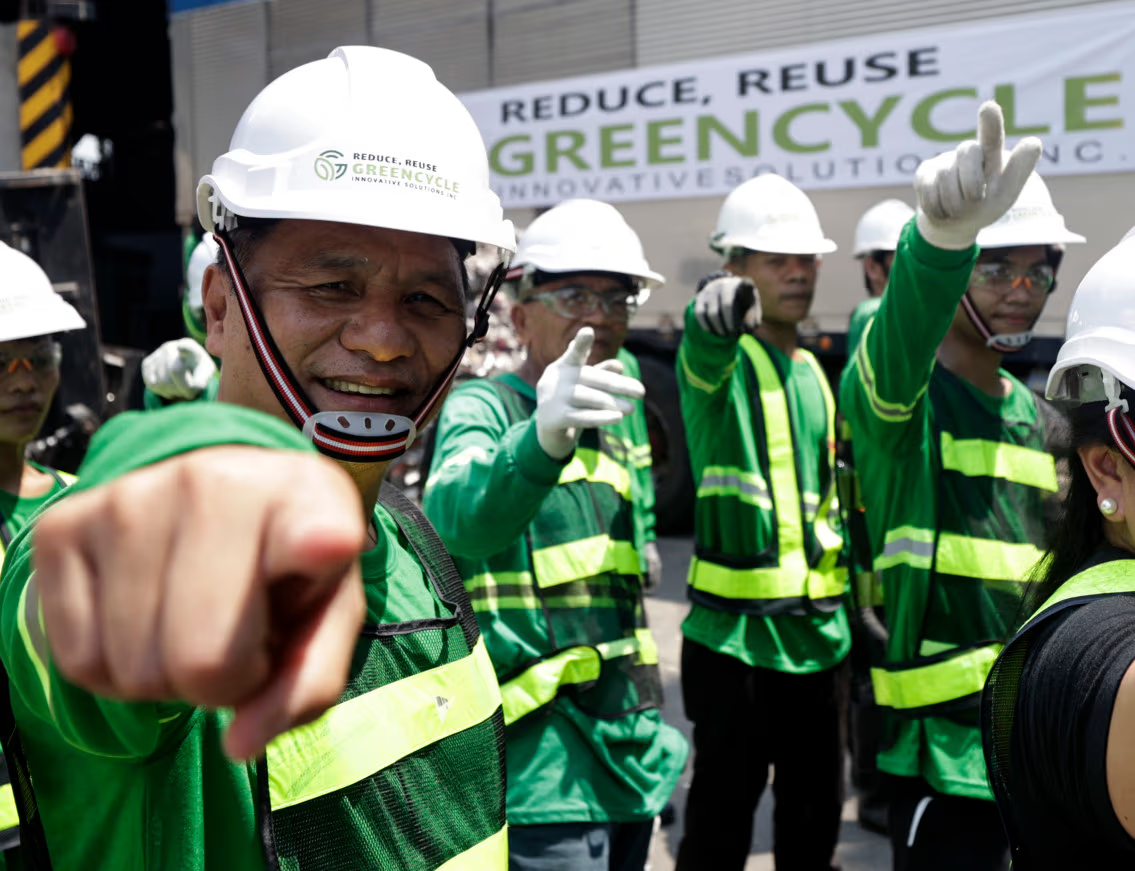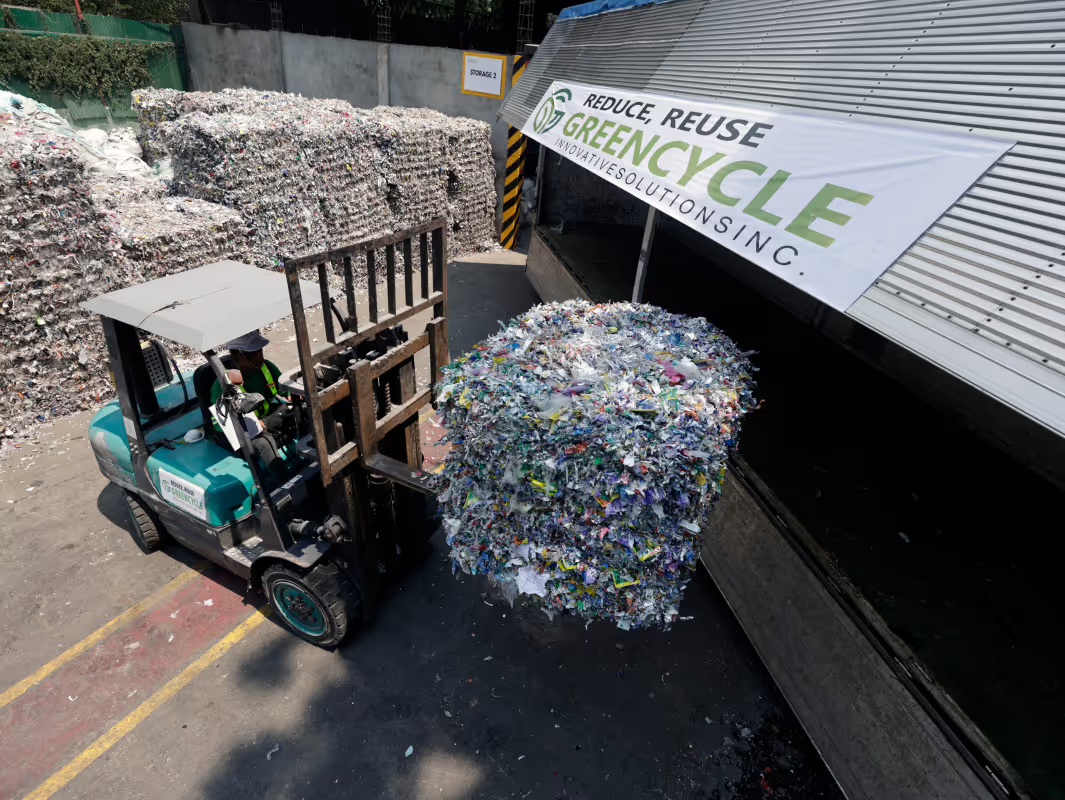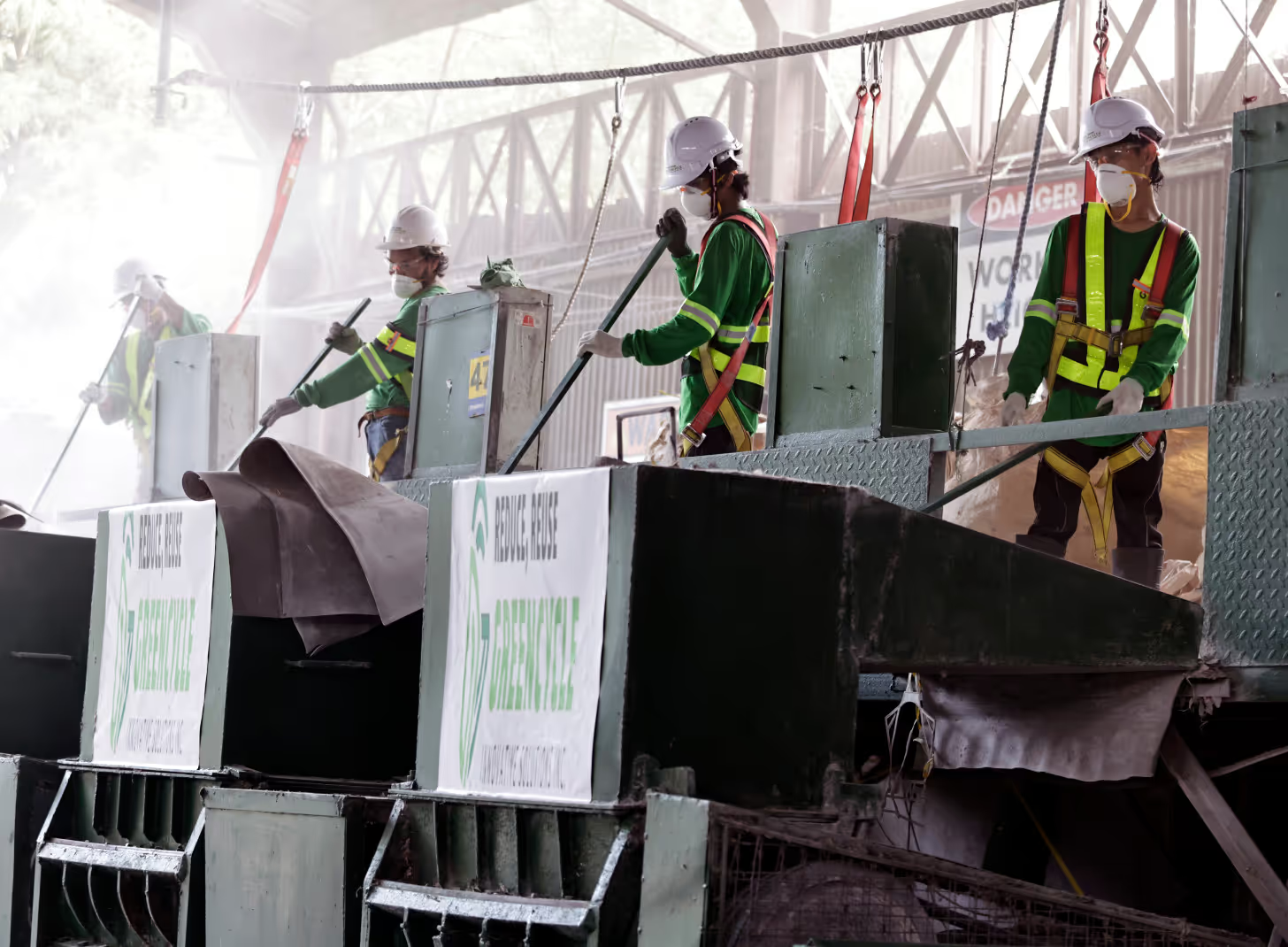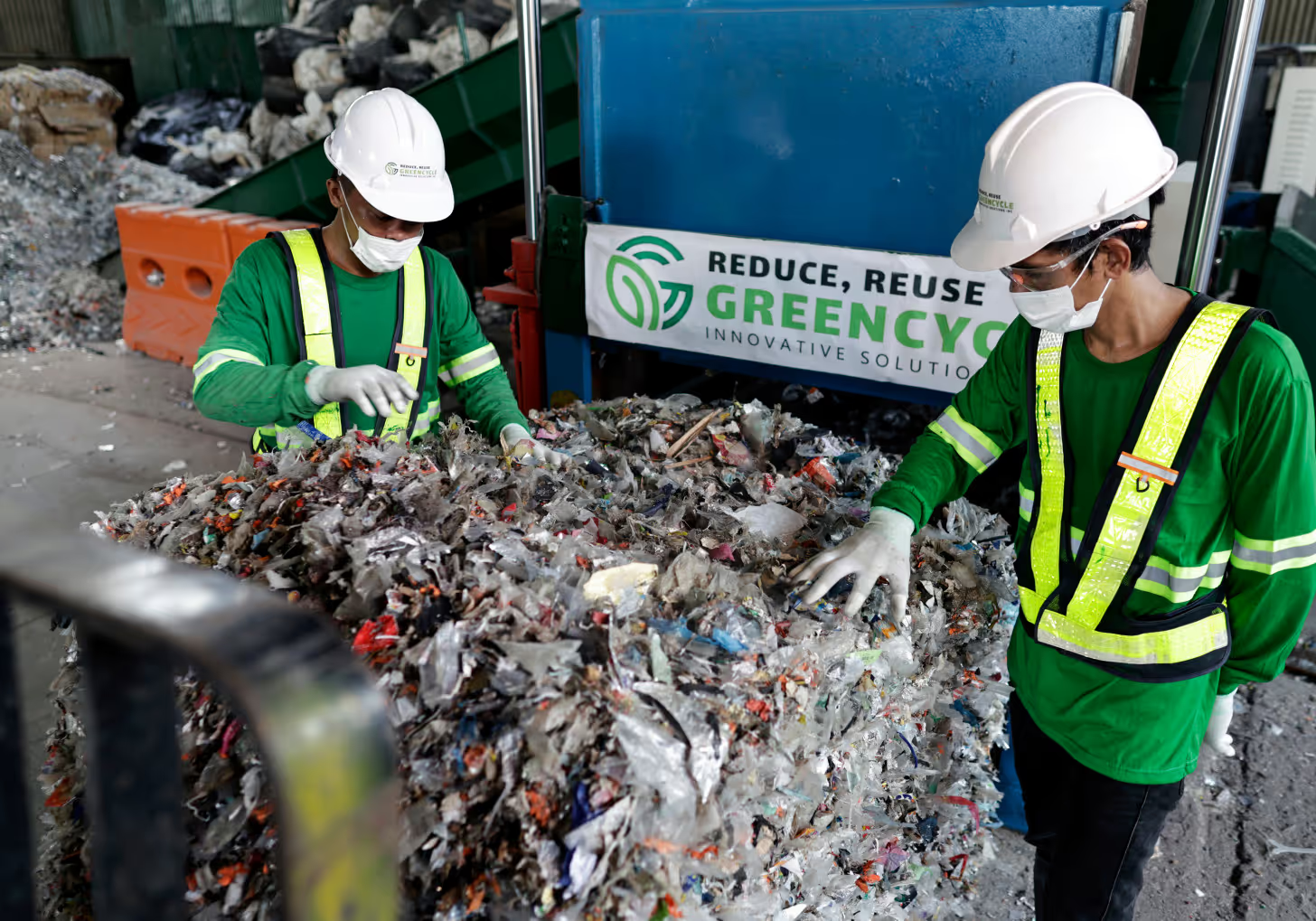
Greencycle Innovative Solutions
Download Our Progress Report 2024: Evolving for Impact
The Alliance supports a range of projects in countries that are at different levels of plastic recycling maturity. All are attempting to break through assumptions of what is currently possible within their local context. Find out more in our Progress Report.
With around 7,600 islands forming the sprawling archipelago that makes up the Philippines, the island nation’s beautiful beaches are a much-loved tourist destination for people from all over the world.
But the Philippines is also a big consumer of plastic with inadequate waste management infrastructure and a heavy reliance on single-use plastics. Substantial quantities of plastic waste arriving in the ocean threaten that image of pristine white-sand beaches.
With support from the Alliance, Quezon City-based Greencycle Innovative Solutions (GIS) continued its efforts in 2024 to tackle the plastic waste issue by bolstering waste management infrastructure and practices. The project operates predominantly in Metro Manila to collect and recover low-value flexible plastic waste. To process the collected waste, GIS works with junk shops and cement plants in the Greater Manila Area. Last year, GIS successfully established and developed an additional facility in Imus, in the Cavite province south of Metro Manila.
The Quezon City facility, which began operations in May 2023, has already accomplished its target of collecting 6,000 tonnes of low-value plastic waste and converting it into Refuse-Derived Fuel (RDF). That was completed in 2023, six months ahead of schedule. Operations at the Imusfacility commenced in May 2024, collecting and recycling more than 2,500 tonnes by December 2024.
These facilities represent a strategic shift in GIS approach, expanding beyond Metro Manila, home to around 13.5 million people, to address plastic waste challenges in provincial areas where support is urgently needed.
In 2024, GIS also intensified its work with the informal sector, including local junk shops, alongside partnerships with local governmental units (LGUs) and small administrative divisions called barangays. This work to bolster the informal sector includes providing equipment and working capital for waste pickers.
The project also looks into providing safer working conditions for women workers, including providing separate washing areas and bathrooms. This grassroots engagement is part of an effort to address social welfare issues as well as environmental concerns.
Despite making steady progress toward its 2024 targets, GIS encountered challenges— most notably a decline in demand from the cement industry for plastic waste as alternative fuel, driven by an economic slowdown. This highlighted the need for diversified end markets for collected plastic waste.
With its expanded facilities, strategic partnerships, and innovative approaches, GIS is making significant contributions to addressing the Philippines’ plastic waste challenges, demonstrating how targeted investments can drive meaningful progress toward a circular economy.


